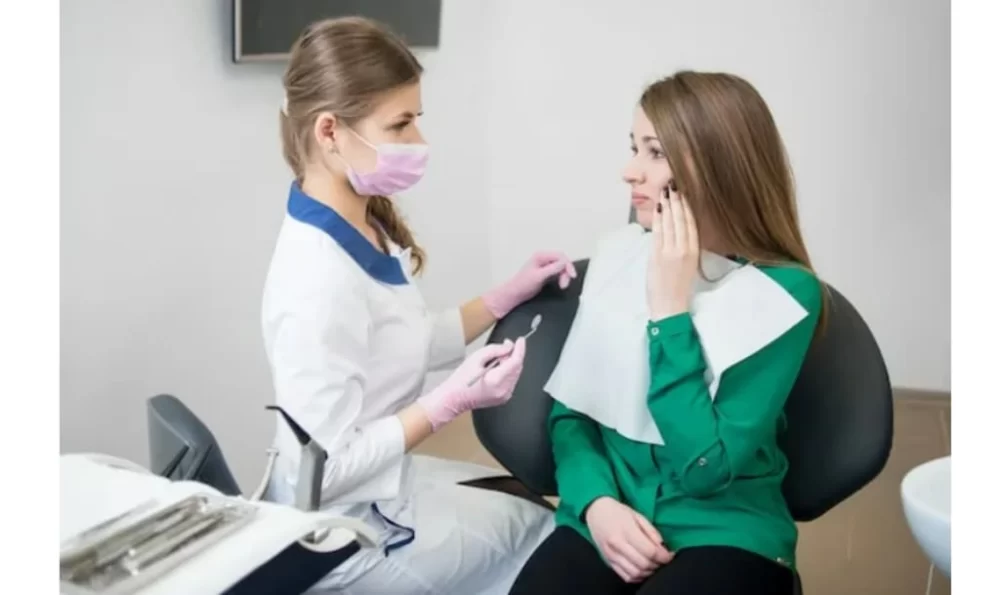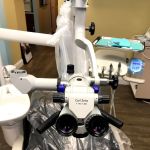
How to Handle a Dental Emergency When Traveling: Essential Tips and Advice
- Understanding Dental Emergencies
- Common Dental Issues When Traveling
- Tips for Handling a Dental Emergency
- Finding Emergency Dental Care Abroad
- Preventing Dental Problems While Traveling
1. Understanding Dental Emergencies
Dental emergencies can happen at any time, but they can be especially stressful when you're traveling abroad. Whether it's a severe toothache, a broken tooth, or gum bleeding, the first step in handling these situations is to understand what qualifies as a dental emergency. Emergency dental care typically addresses issues that require immediate attention to prevent worsening conditions or prolonged pain.
Knowing when a dental issue requires urgent care can help you make the right decision quickly, especially when you're far from home. Common signs of a dental emergency include severe pain, swelling, a knocked-out tooth, or bleeding that doesn't stop. If you experience any of these, it's important to act fast and seek help immediately.
2. Common Dental Issues When Traveling
While traveling, you're likely to encounter some common dental issues due to changes in diet, stress, and access to regular care. Among the most common problems are:
- Toothaches: Often caused by food particles stuck between teeth or cavities that become aggravated during travel.
- Loose or Lost Fillings: A filling might loosen or fall out, especially if you've been eating hard or sticky foods.
- Broken or Chipped Teeth: Accidents during travel, such as eating hard foods or sporting activities, can lead to broken teeth.
- Swollen Gums: Changes in your routine, such as skipping brushing or using unfamiliar water, can cause gum irritation or swelling.
Each of these issues requires different approaches to handling them, but they all share the need for immediate attention to avoid further complications.
3. Tips for Handling a Dental Emergency
When a dental emergency strikes during your travels, staying calm is crucial. Here are some tips to help you manage the situation effectively:
- Assess the Situation: Understand whether the problem is severe enough to require emergency dental care or if it can wait until you return home.
- Pain Relief: Use over-the-counter pain relievers like ibuprofen or acetaminophen to manage pain until you can see a dentist.
- Cold Compress: Applying a cold compress to the affected area can help reduce swelling and pain, especially if you have a swollen face or gums.
- Avoid Hard Foods: If you have a broken tooth or filling, avoid eating hard or sticky foods that could worsen the damage.
These initial steps will help manage the emergency temporarily, but the next step is to find a dentist who can provide appropriate care.
4. Finding Emergency Dental Care Abroad
Finding a reliable dentist in a foreign country can be intimidating, but there are several ways to find emergency dental care:
- Hotel Concierge: Many hotels have connections with local medical professionals and can help you find a dentist quickly.
- Online Research: Use your smartphone to search for nearby dentists with good reviews. Many clinics now offer emergency services for travelers.
- Embassies or Consulates: Your country’s embassy can help you locate trusted medical professionals, including dentists.
Once you've found a dentist, call ahead to explain your situation. They may be able to offer immediate advice or schedule you for an emergency appointment.
5. Preventing Dental Problems While Traveling
Prevention is always better than cure, and while traveling, there are several precautions you can take to reduce the likelihood of a dental emergency:
- Maintain Good Oral Hygiene: Stick to your regular brushing and flossing routine, even when traveling. Carry a travel-sized toothbrush and toothpaste with you.
- Avoid Risky Foods: Steer clear of hard candies, ice, and overly chewy foods that could damage your teeth.
- Hydrate: Drink plenty of water, especially in places where the water quality may differ, to avoid dehydration and dry mouth.
By taking these preventive measures, you can reduce the chances of a dental emergency disrupting your travel plans.
In conclusion, while a dental emergency while traveling is never ideal, understanding how to handle it can make all the difference. Keep a calm mindset, follow the tips above, and always have access to emergency dental care if necessary. With a little preparation, you can avoid letting dental issues derail your trip.
If you're planning a trip and want to ensure you're fully prepared for any dental issues, consider investing in a travel dental kit that includes pain relief items, a toothbrush, toothpaste, and floss. With these essentials, you’ll be ready for anything!







 Access Dental Group Manhattan PLLC3.0 (18 review)
Access Dental Group Manhattan PLLC3.0 (18 review) South Shore Dental Care: Dory Stutman, DDS5.0 (7 review)
South Shore Dental Care: Dory Stutman, DDS5.0 (7 review) Savage Success | Rhonda Savage DDS1.0 (1 review)
Savage Success | Rhonda Savage DDS1.0 (1 review) David L Goettee, D.D.S., PC5.0 (1 review)
David L Goettee, D.D.S., PC5.0 (1 review) Nuttall Smiles4.0 (424 review)
Nuttall Smiles4.0 (424 review) Patricia Pasnikowska DDS5.0 (105 review)
Patricia Pasnikowska DDS5.0 (105 review) The Importance of Oral Health Education During Pregnancy for a Healthy Pregnancy
The Importance of Oral Health Education During Pregnancy for a Healthy Pregnancy Best Tips for Brushing Your Teeth Properly for Healthy Gums: Essential Techniques for Oral Health
Best Tips for Brushing Your Teeth Properly for Healthy Gums: Essential Techniques for Oral Health Why Skipping Dental Checkups Can Lead to Bigger Oral Health Problems
Why Skipping Dental Checkups Can Lead to Bigger Oral Health Problems Advantages of Porcelain Dental Restorations
Advantages of Porcelain Dental Restorations How Can Diabetes Cause Tooth and Gum Problems? Preventing and Managing Oral Health Issues
How Can Diabetes Cause Tooth and Gum Problems? Preventing and Managing Oral Health Issues Healthy Habits for Promoting Good Oral Health and Hygiene: Tips for a Healthy Smile
Healthy Habits for Promoting Good Oral Health and Hygiene: Tips for a Healthy Smile